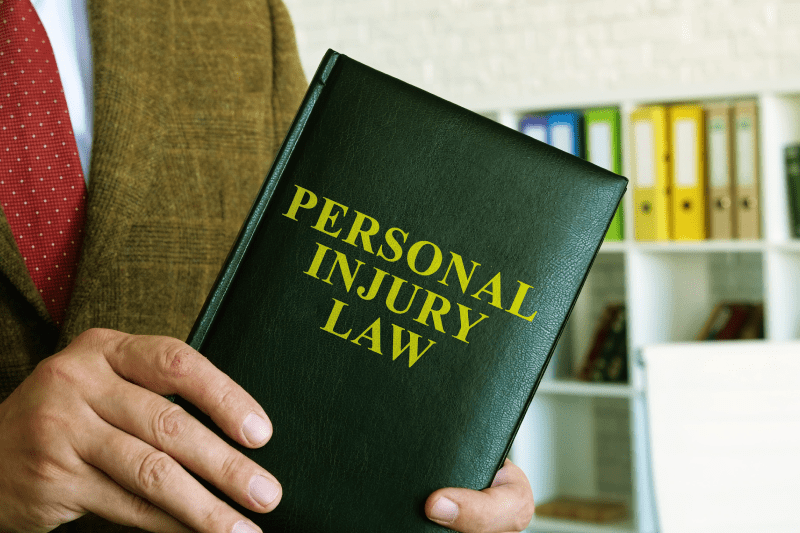We all know that accidents can happen at any time. When they do, there are always questions about blame and liability. If you experience an injury as a result of a car accident, work accident, or any other cause, you may be entitled to claim compensation from an at-fault party. In order to make successful personal injury claims, however, you need to work through certain required steps, and you will need to have specific documents to hand. Many people get a little overwhelmed by the requirements of personal injury claims, but there is no need to worry. Follow this simple guide and then let your attorney walk you through the rest.
Who Is Protected By Personal Injury Law?
Before you begin the claim process, are you even protected by personal injury law, to begin with? Personal injury law protects any and all individuals against injuries resulting from another person or party’s negligence, malpractice, or intentional wrongdoing. Injured persons may include drivers or passengers who suffer injuries in a car accident as a result of another driver’s failure to observe the rules of the road, or a worker injured in the line of duty because of an employer’s lax safety precautions, or perhaps a homeowner whose property is damaged after a drunk driver plows their car through an exterior wall. If you are the injured party in any such case, and the liability of another party can be proven, then you are protected by personal injury law and can file a lawsuit.
The Basic Requirements For Personal Injury Cases
If you believe that you are entitled to damages, first examine your case and check that it meets the following criteria.
– Personal Injury
You must have some type of personal injury in order to consider filing a personal injury claim. It could take one of two forms (or include both):
- Physical injury, with medical records that prove the nature and causes.
- Mental/ emotional suffering: These are more difficult to prove than physical injuries, but they can also be established through records and testimony from a healthcare professional. Examples include brain damage that leads to impaired cognition, or emotional trauma suffered due to the accident.
– Negligence
Once the nature and causes of your personal injury have been established, it must be proven that the event that led to them was the result of another party’s negligence. It is important to note that negligence is not necessarily a burden to be borne by only one party. There could be two or several responsible parties, depending on the specifics of the case.
– Recoverable Damages
You must be able to prove that the harm you sustained as a result of the accident has both personal and financial aspects, and that this harm can be at least partially remedied by financial compensation.
There are two general types of damages you can claim:
- Compensatory damages, which are intended to compensate you for your suffering and losses. These could include anything from medical bills to lost wages and property damage.
- Punitive damages: These are intended to punish the negligent party. It is not always possible to claim punitive damages. It depends on the nature of the incident, or the negligent party’s response to it. It may also be applicable if the negligence party has a history of negligence or if the negligence in question was particularly heinous.
– A Valid Cause Of Action
Finally, your claim needs to be valid, which is to say, it must be filed before the statute of limitations expires. In Florida, the statute of limitations on personal injury claims is four years. In New York, it is three years.
What Documents Do You Need for Your Personal Injury Claim?
To move forward with your personal injury claim, you will need the following documents:
- Law enforcement reports: If the police or fire department were called to the scene, they would have filed a report on the incident. Even if they didn’t you probably needed to report the incident yourself at your local precinct, even if only for insurance purposes. Any documents that were drawn up by law enforcement officials must be presented in order to advance your case.
- Incident reports: Other parties, such as your employer or eyewitnesses, other employees, or other victims of an accident, may also have filed reports on the incident. Copies of these should also be accessible, as they can help draw a more complete picture of what took place.
- Photos of the scene: Any photos taken on the scene are crucial to your case, whether of your injuries, damaged vehicles, the road, or damaged property – whatever is relevant to the case.
- Medical documents: All documents detailing your injuries and treatment must be included.
- Expert opinions: Expert witnesses, such as any medical specialists handling your treatment, should be called upon to present their opinions in writing – or in person if the case goes to court.
- Insurance information in relation to the case.
- Any medical or repair bills that relate to the injuries and damages suffered.
- Work information, including your work history and pay stubs. If you are claiming for lost wages or lost earning capacity, these documents are crucial.
About Shamis & Gentile, P.A.
Shamis & Gentile, P.A. provides outstanding legal services in Florida and New York. We distinguish ourselves because of our experience and resources, which we combine to handle any kind of case involving personal injury, personal injury protection, class actions/mass tort, and contract disputes. When you bring your case to Shamis & Gentile, you will always work with a seasoned attorney who has an excellent track record. We are progressive and trusted within the legal community, and we are often called upon to settle cases that other law firms may not be able to handle on their own. If you are planning on filing a personal injury claim, book a consultation with one of our personal injury lawyers to discuss your case.



